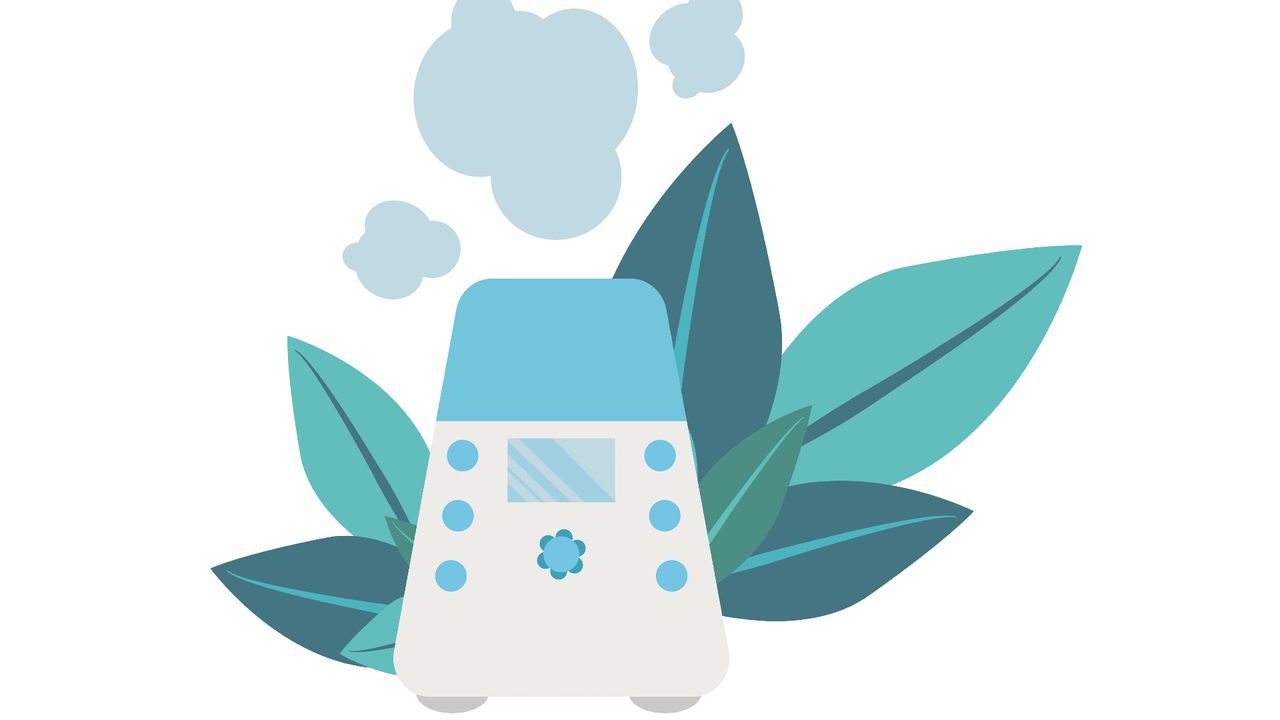Do air purifiers work? We consult the evidence
Should you believe the hype about home air purifiers?

As sales pitches go, “There’s stuff you can’t see! This machine gets rid of it!” leaves plenty of room for snake oil salesmen. So, when I see adverts telling me that if I buy the best air purifier, it’ll get rid of lots and lots of invisible things, my Spidey-sense starts to tingle a bit. Will it really make a difference or is it yet another example of health-based marketing making unreasonable claims?
Here’s a good example of the kind of thing that makes me suspicious about what benefits you get from using an air purifier. In an article listing nearly 30 reasons to buy an air purifier, it says that you should get one if you’re healthy or if you aren’t, if you live in a big home or a small one, if you are old or young, or have children or are thinking about having children, if you have allergies or don’t have allergies… you get the idea. Do you have red hair? Purifier! Have you ever met an Irishman? Purifier! Do you like toast? Purifier!
That’s not all. Some of the articles go off the deep end and into SPACE CHEMICALS ARE EATING YOUR BRAIN territory; other, more sober ones still make dubious claims about how air purfiers work, how their purifier will boost your immune system, make you happier and no doubt give you shinier, glossier hair, too.
So, let’s investigate. Do air purifiers work?
The short answer is yes, they do.
But that doesn’t mean the marketing claims are necessarily true.
What do air purifiers actually do?
Air purifiers circulate the air in a room and filter out particles. Most of them use a kind of filter called a HEPA filter and that removes at least 99.97% of airborne particles.
Case closed? Not quite.
First of all, that figure only refers to the airborne particles that pass through the filter, not the particles that are actually in your room. If the purifier doesn’t move them through the filter, they don’t get filtered.
Secondly, the particle removal figure you see for HEPA filters refers to particles 0.3 microns or larger. That’s an incredibly small size, but some particles are even smaller – so, for example, volatile organic compounds (VOCs), such as the fumes from some solvents or the harmful gases in cigarette smoke, are too small for HEPA filters to trap. If an air purifier doesn’t have additional filtration, such as activated carbon filters, then take any odour-destroying claims with a big pinch of salt.
Some air filters use ionisers to trap smaller particles. That works by creating negative ions that bond with small particles to create bigger particles that fall to the floor for your vacuum to pick up, but the trade-off is that ionisers may create ozone, which is in itself a pollutant.
What about air purifiers with UV lamps?
We know that ultraviolet light can kill viruses, bacteria and germs. So an air purifier with a UV lamp will do that too, right? Sadly not. The problem is that the lamps are much less powerful than the ones used for medical sterilisation. You can compensate for lower power by increasing the exposure time, but that would mean running the same air under the UV lamp multiple times in quick succession. Domestic air purifiers don’t do that.
What do the experts say about health benefits?
The US Environmental Protection Agency says there is some evidence of mild benefits, stating “multiple studies with portable HEPA air cleaners have found improvements in one or more allergy and/or asthma symptoms”. However, “the studies do not always show major improvements, and they do not show improvements in all symptoms”. The evidence of improvements in cardiovascular and respiratory health are similar: “The improvements are typically small and not always noticeable to the individual, although they may be measurable by health professionals.”
OK, so should I buy an air purifier or not?
As is so often the case with health-related devices, the benefits are often massively overhyped in the marketing, but while some of the claims are clearly ridiculous, that doesn’t mean air purifiers can’t be helpful. If you’re allergic to pet dander or pollen, suffer from asthma or have another respiratory condition, an air purifier that’s powerful enough for the room can reduce the amount of airborne irritants; if it supplements its HEPA filter with activated charcoal filters, it can help reduce odours, too.
Sign up for the woman&home newsletter
Sign up to our free daily email for the latest royal and entertainment news, interesting opinion, expert advice on styling and beauty trends, and no-nonsense guides to the health and wellness questions you want answered.
Writer and broadcaster Carrie Marshall has been writing about all kinds of technology since 1998. Carrie’s CV is a who’s who of magazines, newspapers, websites and radio programs ranging from T3, Woman & Home, Techradar and MacFormat to the BBC, Sunday Post and People’s Friend, and she offers straight-talking tech advice on BBC Radio Scotland every Monday. Carrie has also written thirteen non-fiction books and ghost-written two more, and she has also been the co-writer of seven books and a Radio 2 documentary series. Her memoir, Carrie Kills A Man, will be published in late 2022.
-
 Caught ending explained: Who was the killer and is Leo dead?
Caught ending explained: Who was the killer and is Leo dead?Another Harlan Coben thriller is riding high on Netflix, and viewers are asking for a deep dive of the intense ending of Caught
By Lucy Wigley Published
-
 Chocolate brown is everywhere but Ranvir Singh's Reiss sale dress stands out from the crowd
Chocolate brown is everywhere but Ranvir Singh's Reiss sale dress stands out from the crowdRanvir Singh has made us fall in love with deep cocoa brown all over again and her Reiss midi dress is more than 50% off
By Emma Shacklock Published